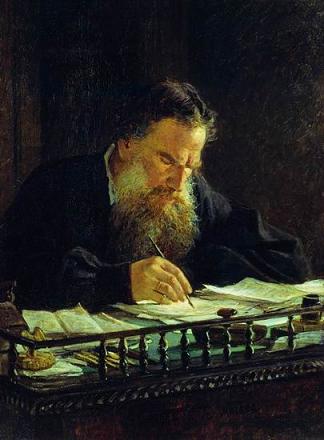Leo Tolstoy Archive
Written: 1898
Source: Translated by Nathan Haskell Dole
Transcription/Markup: Andy Carloff
Online Source: RevoltLib.com; 2021

Hares feed at night on the bark of trees ; field-hares, on seeds and grass ; barn-hares, on grains of wheat on the threshing-floors.
In the nighttime hares leave on the snow a deep, noticeable trail. Men and dogs and foxes and crows and eagles delight in hunting hares.
If a hare went in a straight line without doubling, then in the morning there would be no trouble in following his trail and catching him ; but God has endowed the hare with timidity, and this timidity is his salvation.
At night the hare runs over the fields and woods with- out fear and leaves a straight track; but as soon as morning comes, and his foes awake, then the hare begins to listen, now for the barking of dogs, now for the creaking of sledges, now for the voices of peasants, now for the noise of wolves in the woods, and so he leaps first to one side and then to the other.
He darts ahead, and something frightens him, and so he doubles on his track. Then he hears something else, and with all his might he leaps to one side and makes away from his former track. Again something startles him, and the hare turns back and again jumps to one side. When it is daylight, he is in his hole.
In the morning, when the sportsmen begin to track the hare, they become confused in this maze of double tracks and long leaps, and they marvel at the hare's shrewdness.
But the hare had no thought of being shrewd : he was merely afraid of everything.